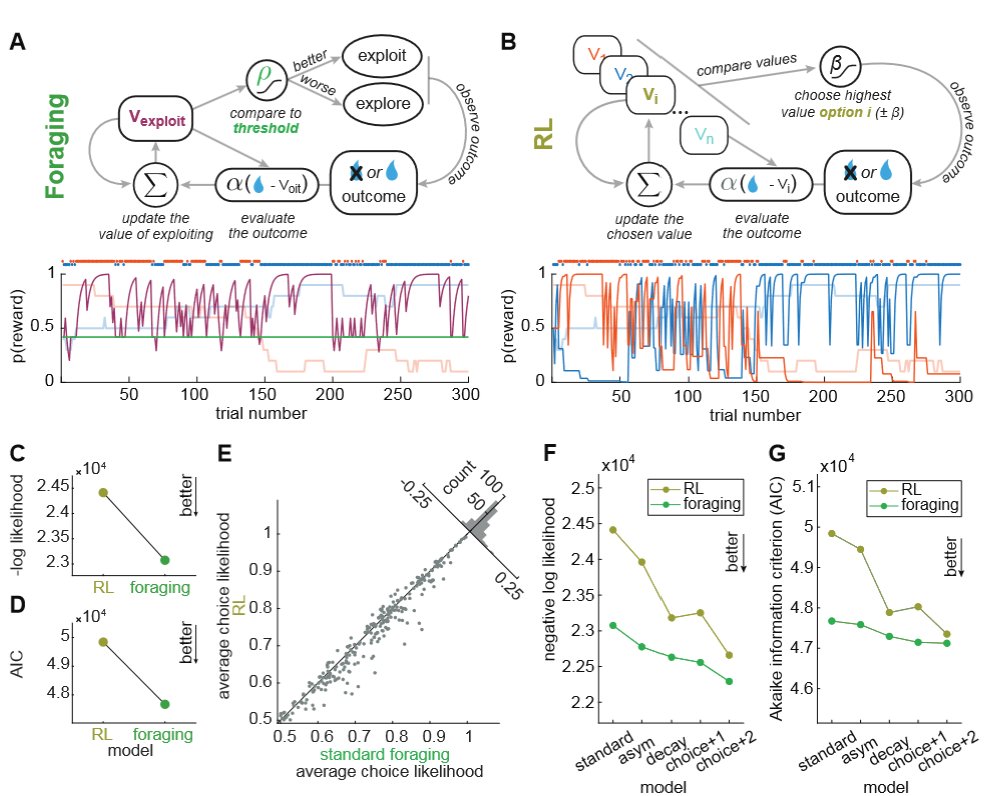
Bastien Blain
@bastien__blain
I develop some computational models and I then hope people comply with them. I sometimes do the same with neural data. App: thehappinessproject.app
ID: 3222722628
https://bastienblain.weebly.com/ 22-05-2015 00:03:20
393 Tweet
489 Followers
421 Following

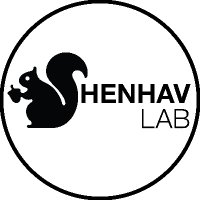


I am so excited to be part of this fantastic project. Submit your work and join us NeurIPS Conference in Vancouver!

🚨 New paper alert! 🚨 “Considering information-sharing motives to reduce misinformation” out now in Current Opinion in Psychology with affective.brain. doi.org/10.1016/j.cops… (1/n)

Beyond discrete-choice options Review by AH Hadian Rasanan , NJ Evans, laura fontanesi, @CManningPhD, C Huang-Pollock, @dora_matzke, Andrew Heathcote, Jörg Rieskamp, Maarten Speekenbrink, MJ Frank, Stefano Palminteri (@stepalminteri.bsky.social), C Lucas, J Busemeyer, R Ratcliff, & JA Rad tinyurl.com/3dsbs3zm



The affective gradient hypothesis: an affect-centered account of motivated behavior Opinion by Amitai Shenhav (Amitai Shenhav) Free access before Nov 13: authors.elsevier.com/a/1jpv%7E_V1r-…
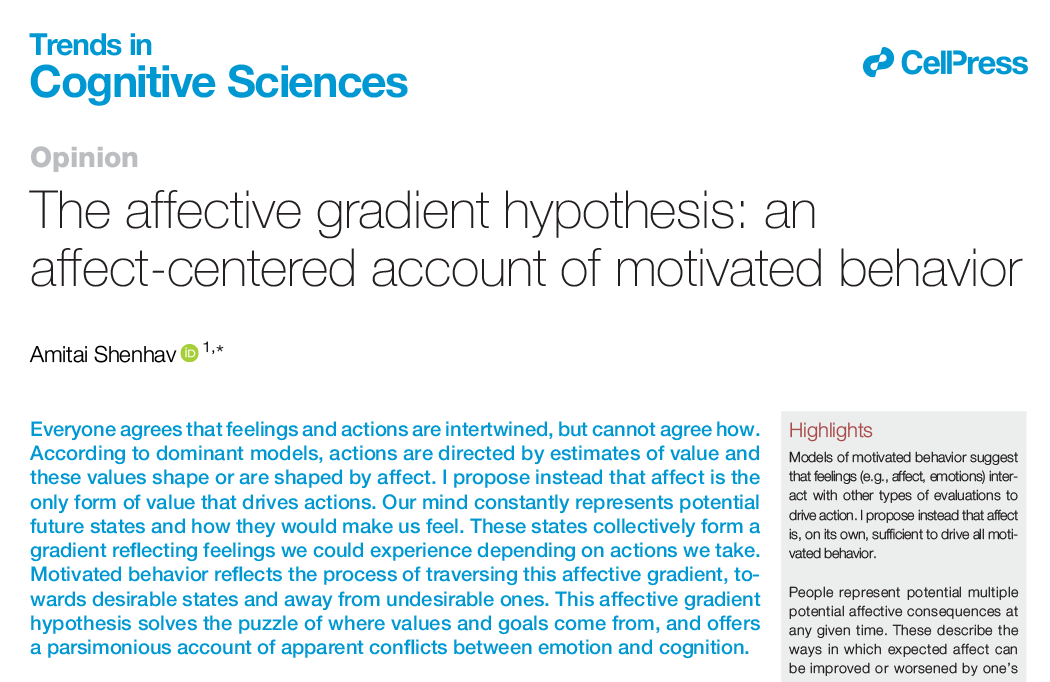

Our paper on the Affective Gradient Hypothesis is now out on Trends in Cognitive Sciences! 🧠 ➡️sciencedirect.com/science/articl… For a short summary of how this theory originated and what it proposes, see this 🧵: x.com/amitaishenhav/…


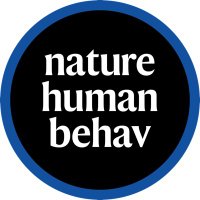
.Moshe Glickman and affective.brain reveal a human-AI feedback loop, where AI amplifies subtle human biases, which are then further internalized by humans. This cycle increases human bias over time across domains. nature.com/articles/s4156…

New(ish) paper w/ affective.brain & Bastien Blain in Scientific Reports! We find that during stress (both COVID and personal events), people search for more “How” questions online. This shift indicates a heightened demand for actionable info. Link: nature.com/articles/s4159… 🧵1/3

The metabolic costs of cognition Review by Sharna D. Jamadar (Sharna Jamadar), Anna Behler (@Anna_NeuroSci), Hamish Deery (Hamish Deery), & Michael Breakspear (Michael Breakspear) Free access before March 4: tinyurl.com/47c9n65w


Very pleased to start a 5-year research program using data science to investigate the role of instability in severe mental illness. If you/someone you know want to join the team, PM me (recruitment starts soon). Thanks to Oxford Health Biomedical Research Centre, Oxford Psychiatry, and Sir Jules Thorn Charity

🧠 One of the key limitation of LLMs today is their lack of metacognition: they were (mostly) not trained to know what they know or don't know, what they can or can't do. 🚀At Inria Flowers team, we're proposing an approach to build metacognition into LLMs: MAGELLAN !


Origins and consequences of cognitive fatigue Feature Review by Mathias Pessiglione, Bastien Blain (Bastien Blain), Antonius Wiehler (Antonius Wiehler), & Shruti Naik Free access before May 20: tinyurl.com/2va75b5j
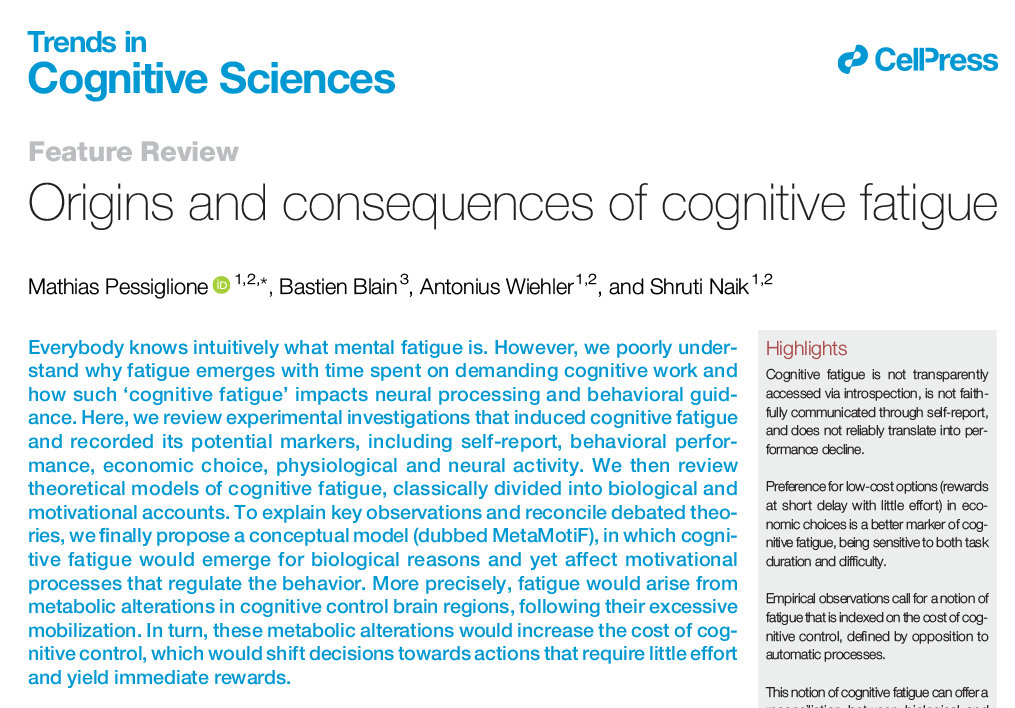

I am SO excited to share my latest #preprint with collaborators Robb Rutledge, zeb kurth-nelson, Martin Chadwick, summerfieldlab @summerfieldlab.bsky.social, and others from DeepMind: "Increasing happiness through conversations with artificial intelligence" arxiv.org/abs/2504.02091 A short 🧵 1/7

Exciting new project led by Joey Heffner showing prediction errors can explain happiness in human-AI interactions. Builds off our recent work linking mood & language led by Jihyun K. Hur doi.org/10.1073/pnas.2… If we want AI to increase well-being, we need to measure it.
